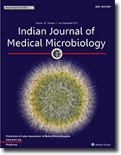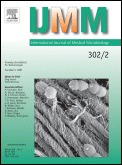
Frontiers in Cellular and Infection Microbiology
Scope & Guideline
Connecting researchers to combat global health challenges.
Introduction
Aims and Scopes
- Infection Biology and Pathogenesis:
Research on the mechanisms of infection by various pathogens, including bacteria, viruses, fungi, and parasites. Studies often focus on understanding how these microorganisms exploit host cellular processes to establish infections. - Host-Microbe Interactions:
Investigations into how the host immune system interacts with pathogens and commensal organisms, including the role of the gut microbiome in health and disease. - Antimicrobial Resistance and Novel Therapeutics:
Research aimed at understanding the mechanisms of antimicrobial resistance and the development of new therapeutic strategies, including the use of phage therapy, probiotics, and novel drug compounds. - Microbial Genomics and Metagenomics:
Utilization of advanced genomic techniques to analyze microbial communities, pathogen genomes, and their implications for disease diagnosis and treatment. - Clinical Microbiology and Diagnostics:
Application of innovative diagnostic tools, including metagenomic next-generation sequencing, to improve pathogen detection and patient outcomes in infectious diseases. - Translational Research:
Focus on bridging laboratory research with clinical applications, including the development of vaccines and therapeutic interventions based on microbiome research.
Trending and Emerging
- Gut Microbiota and Health:
Research focusing on the gut microbiome and its implications for various diseases, including metabolic disorders, autoimmune diseases, and infections, has surged. This reflects a growing recognition of the microbiome's role in overall health. - COVID-19 Research:
There has been an explosive increase in studies related to SARS-CoV-2, encompassing various aspects such as pathogenesis, immune response, diagnostics, and long-term effects, as the pandemic continues to influence global health. - Antimicrobial Resistance Mechanisms:
A growing body of research is dedicated to elucidating the mechanisms behind antimicrobial resistance, including the genetic and phenotypic characteristics of resistant strains, which is crucial for developing new treatment strategies. - Phage Therapy and Novel Antimicrobials:
Interest in bacteriophage therapy and other novel antimicrobial agents has increased as potential alternatives to traditional antibiotics, particularly in the context of rising antimicrobial resistance. - Infection Control and Prevention Strategies:
Studies focusing on innovative infection control measures, including the use of probiotics, dietary interventions, and environmental factors affecting microbial infection rates, are trending.
Declining or Waning
- Traditional Culture-Based Microbiology:
There has been a noticeable decline in publications focusing solely on traditional culture-based methods for microbial identification and susceptibility testing, as newer techniques such as metagenomics gain prominence. - Basic Virology Studies:
Research papers dedicated to basic virology without a clear link to clinical implications or translational applications have become less frequent, as the focus shifts towards understanding viral pathogenesis and therapeutic strategies. - Historical Epidemiological Studies:
There appears to be a reduction in the publication of historical epidemiological studies that do not incorporate modern analytical techniques or tools, as more researchers seek to apply contemporary methods to solve current health issues. - Studies on Non-Pathogenic Microbes:
The exploration of non-pathogenic microbes and their roles in human health has decreased, with more emphasis placed on pathogenic microbes and their interactions with the immune system.
Similar Journals

Journal of Pathogens
Innovating Solutions in Microbiology and Disease ControlJournal of Pathogens is a premier peer-reviewed journal published by HINDAWI LTD, focusing on the critical field of microbiology, infectious diseases, and the mechanisms of pathogen interactions with hosts. Since its inception in 2011 as an Open Access journal, it has aimed to provide a platform for high-quality research articles, reviews, and case studies that enhance our understanding of pathogenesis and advance the science of disease control. With its commitment to making research freely accessible, the journal attracts a global audience of researchers, professionals, and graduate students keen on exploring innovative findings and applications in the study of pathogens. While the journal does not currently have an established H-index or category quartiles, its relevance and importance in the field continue to grow as it seeks to bridge knowledge gaps and facilitate impactful discussions in infectious disease research. Located at Adam House, 3rd Floor, 1 Fitzroy Square, London W1T 5HF, England, the Journal of Pathogens invites submissions that contribute to the ever-evolving landscape of pathogen research and public health.

INFECTION CONTROL AND HOSPITAL EPIDEMIOLOGY
Advancing the Science of Infection PreventionINFECTION CONTROL AND HOSPITAL EPIDEMIOLOGY, published by Cambridge University Press, is a leading academic journal specializing in the critical fields of epidemiology, infectious diseases, and medical microbiology. With a history of publication dating back to 1988 and an expected continuation through 2024, the journal has established itself as a pivotal resource for researchers, healthcare professionals, and students alike. The journal's impact is reflected in its impressive rankings, positioning it in the second quartile for Epidemiology and the first quartile for both Infectious Diseases and Medical Microbiology as of 2023. This esteemed journal is dedicated to the dissemination of high-quality research that informs best practices in infection control and enhances patient safety across healthcare settings. Although access to its content is not open, the rigorous peer-review process ensures that all published articles contribute significantly to the body of knowledge in these vital areas. With a commitment to bridging the gap between research and practice, INFECTION CONTROL AND HOSPITAL EPIDEMIOLOGY remains an essential publication for those committed to the advancement of public health and the science of infection prevention.

Brazilian Journal of Infectious Diseases
Transforming clinical practice with cutting-edge studies.The Brazilian Journal of Infectious Diseases, published by Elsevier Brazil, is a premier open-access journal dedicated to advancing research and clinical practice in the field of infectious diseases. Since its inception in 2001, this journal has been pivotal in disseminating innovative studies and reviews that inform healthcare professionals and researchers alike. With an impressive impact factor reflected by its ranking in the second quartile for Infectious Diseases and third quartile for Medical Microbiology in 2023, the journal ranks #127 out of 344 in medicine – infectious diseases and #61 out of 140 in medical microbiology, showcasing its reputable standing in the scientific community. The Brazilian Journal of Infectious Diseases invites contributions that highlight significant findings, novel methodologies, and critical reviews aimed at enhancing patient care and public health initiatives. With an international readership and a focus on pressing issues in infectious diseases, it serves as an essential platform for knowledge exchange and collaboration among scholars and practitioners across Brazil and beyond. By reinforcing the importance of open access to scientific literature, this journal not only promotes transparency but also enhances the global discourse surrounding infectious diseases.

Microbiology Research
Exploring the Microbial Universe, One Study at a TimeMicrobiology Research, published by MDPI, stands as a pivotal open-access journal in the field of microbiology, having established its presence since 2010. Based in Switzerland, this journal strives to provide a platform for innovative research and cutting-edge findings in various branches of microbiology, including medical microbiology and molecular biology. With an impact factor that reflects its dedication to scholarly excellence, Microbiology Research is classified in the Q3 category for both microbiology and medical microbiology, and Q4 for molecular biology as of 2023, indicating its growing importance and outreach within these domains. The journal aims to foster discussion and collaboration among researchers, professionals, and students by presenting articles that cover a wide array of topics and methodologies in microbiological research. Leveraging its open-access model, Microbiology Research ensures that high-quality research is accessible to a global audience, thus facilitating the advancement of knowledge and innovation in the microbial sciences.

INFECTION AND IMMUNITY
Pioneering Insights for a Healthier TomorrowINFECTION AND IMMUNITY is a distinguished peer-reviewed journal published by the American Society for Microbiology, focusing on groundbreaking research in the fields of infection, immunology, microbiology, and parasitology. Established in 1971, this journal has built a robust legacy, converging years of scientific discovery with a vision towards 2024 and beyond. With an impressive Impact Factor, the journal holds significant rankings in various categories; its Q1 status in both Infectious Diseases and Parasitology underscores its high relevance and quality within the scientific community. Researchers and professionals alike will benefit from its content, as it promotes the latest advances in understanding immune responses and infectious agents, further legitimizing its place among the top quartiles of its respective fields. Access options are provided through traditional subscription models, ensuring a broad charitable dissemination of knowledge. As a pivotal resource for scholars and practitioners alike, INFECTION AND IMMUNITY stands at the forefront of microbiological and immunological research, fostering essential discourse that is crucial for advancing public health and scientific insight.

Indian Journal of Medical Microbiology
Exploring Innovations in Infectious Diseases and ImmunologyIndian Journal of Medical Microbiology, published by Elsevier, is a pivotal peer-reviewed journal dedicated to the field of medical microbiology, providing a vital platform for research and scholarship since its inception in 1986. With an Open Access model established in 2001, it ensures the dissemination of scientific knowledge to a global audience, enhancing accessibility for researchers, professionals, and students alike. The journal's scope spans critical areas including immunology, infectious diseases, and microbiology, with an impressive trajectory marked by converged years of publication allowing for a comprehensive exploration of evolving scientific trends. As of 2023, the journal holds a Q3 ranking in Infectious Diseases and Microbiology (medical) and a Q4 ranking in Immunology and Microbiology categories, reflecting its significant yet growing impact in the field. Researchers seeking to contribute to or stay updated on the latest advancements in medical microbiology will find the Indian Journal of Medical Microbiology a valuable resource, as it consistently bridges the gap between emerging science and clinical application.

INTERNATIONAL JOURNAL OF MEDICAL MICROBIOLOGY
Innovating Solutions for Infectious DiseasesWelcome to the International Journal of Medical Microbiology, a leading publication in the field of microbiological research and infectious diseases, offered by Elsevier GmbH. Established in 2000, this esteemed journal provides a scholarly platform for the presentation of high-quality research, reviews, and innovations that bridge medical microbiology and clinical applications. With an impressive impact factor positioning it within the Q1 category across multiple disciplines, including Infectious Diseases, Microbiology, and Medicine, the journal is recognized for its rigorous peer-review process and significant contributions to advancing our understanding of microbial pathogenesis, diagnostics, and therapeutics. The International Journal of Medical Microbiology is committed to open access, promoting the dissemination of knowledge and accessibility for researchers, professionals, and students worldwide. Based in Munich, Germany, the journal continues to play a vital role in the global scientific community, fostering collaborations and inspiring future innovations in the fight against infectious diseases.

mSphere
Pioneering research at the intersection of microbiology and molecular biology.mSphere is a leading open-access journal published by the American Society for Microbiology, dedicated to the dynamic fields of Microbiology and Molecular Biology. Since its inception in 2016, mSphere has rapidly established itself as a reputable source of scholarly research, achieving notable impact factors and excellence within the academic community. The journal ranks in the top quartile (Q1) amongst its peers in Microbiology, and Q2 in the field of Molecular Biology, demonstrating its significance and relevance through Scopus rankings—specifically, it holds the #42 spot out of 182 in the Microbiology category and #108 out of 410 in Molecular Biology. With an editorial commitment to advancing the understanding of microbial and molecular sciences, mSphere provides an accessible platform for researchers, professionals, and students alike to disseminate groundbreaking findings. The journal promotes rigorous peer-review and invites innovative contributions aimed at enhancing microbial research mobility and molecular exploration. Accessible openly since 2016, mSphere continues to thrive as an influential publication driving scientific dialogue and discovery in the microbiological sciences.

New Microbes and New Infections
Connecting global researchers to combat new infections.New Microbes and New Infections is an esteemed peer-reviewed journal published by Elsevier Sci Ltd that has been a prominent platform for disseminating groundbreaking research in the fields of Infectious Diseases and Microbiology since its establishment in 2013. With an impressive Open Access model, this journal ensures that vital research findings are readily accessible to researchers, healthcare professionals, and academics worldwide. Positioned in the Q2 category for Infectious Diseases and Q3 for Microbiology in 2023, it reaches a significant global audience, as demonstrated by its high Scopus rankings—#44 out of 344 in Medicine: Infectious Diseases, and #34 out of 182 in Immunology and Microbiology. The journal aims to inspire new ideas and foster collaborations by publishing high-quality research focused on novel microbes and infections, thus playing a crucial role in advancing science and public health in an era where understanding infectious agents is more vital than ever.

Annals of Clinical Microbiology and Antimicrobials
Pioneering discussions that shape the future of healthcare.Annals of Clinical Microbiology and Antimicrobials, published by BMC, is a leading open-access journal that has been fostering scientific discourse in the fields of microbiology and infectious diseases since its inception in 2002. With an established reputation for excellence, this journal is positioned in the prestigious Q1 category across multiple disciplines, including Infectious Diseases, Medicine (miscellaneous), and Medical Microbiology as of 2023. This journal serves as a vital platform for researchers, healthcare professionals, and students, promoting the latest advancements in clinical microbiology and antimicrobial research. Access to its invaluable content is open to all, reflecting the commitment to disseminate knowledge universally. The Annals of Clinical Microbiology and Antimicrobials is based in the United Kingdom and continues to pave the way for innovation and discussions that shape the future of clinical practices in microbiology.